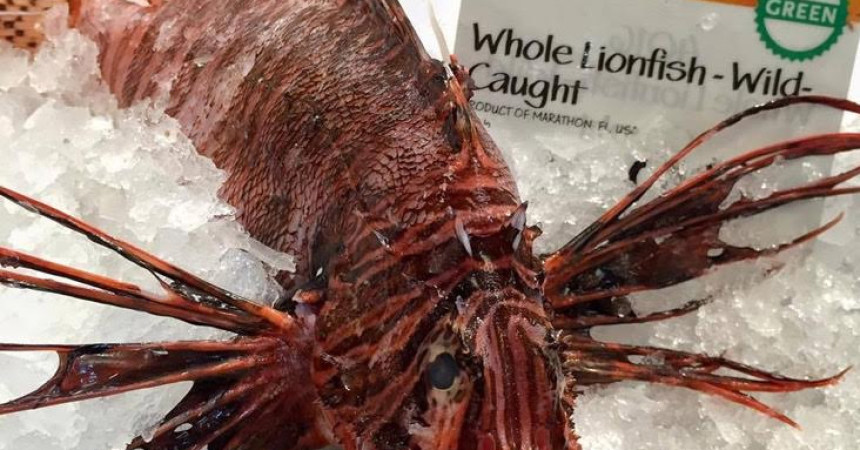
Now serving … the lionfish
By Robyn Murrell
Outlook writer
It’s boldly patterned black and red stripes; porcupine-like fins and venomous spines hardly sounds like something anyone would have an appetite for. But the lionfish is now on dinner plates in many Tallahassee homes.
Declaring the invasive species of fish edible helps to preserve native marine life, said Amanda Nalley, spokeswoman for the Florida Fish and Wildlife Conservation Commission.
“There is some research that show they can have a negative effect on algae eater population,” she said. “Lionfish will move onto a reef, eat up all the algae eaters and then there would be an abundance of algae on the reef that isn’t good for that habitat.”
Lionfish are original inhabitants of the Indian and South Pacific oceans. The first reported sighting of the fish in Florida was around 1985. Since then, their population has spiked, said Nalley.
“In the last 5 to 10 years their numbers have really started to skyrocket,” she said. “You start to see them in places you didn’t before. Such as the Northern areas of the Gulf of Mexico.”
Since there is no marine animal that preys upon lionfish, the only means of controlling the population is if human catch and eat them. The FWC have an open season on the fish and doesn’t require a license to capture the creature.
All 26 Florida Whole Foods stores have added the fish to their menu indefinitely, said Whole Foods spokeswoman Gabriella Rodriguez. The Tallahassee market will be carrying fish caught nearby.
“We have several suppliers in the Panhandle,” she said. “Many of our customers are aware of the damage this species is doing to our ecosystems; others are eager to learn and ask many questions.”
Tianah Allen was shocked at the sight of the fish in stores.
“I didn’t think it looked like something safe to eat; it looks dangerous and poisonous,” said Allen. “If the animals in the sea don’t eat it because of the poison and appearance I think it’s safe to say I shouldn’t either.”
The FWC assures that the fish is not poisonous and is safe for human consumption.
“They have venom in their spine; not in the meat of the fish.” said Nalley. “If you are filleting the fish whole you need to use caution around the spine.”
The white flakey Lionfish fillet is often prepared sautéed in lime juice with light spices. And has many nutritional values.
“They are shown to have a higher concentration of heart-healthy Omega 3 fatty acids and a lower concentration of Omega 6 fatty acids which helps with cholesterol,” said Rodriguez. “The fatty acids in lionfish help to lower your bad cholesterol (LDL) and raise your good cholesterol (HDL). It is also high in lean protein compared to many other fish that we eat and contains lower levels of heavy metals such as mercury.”








